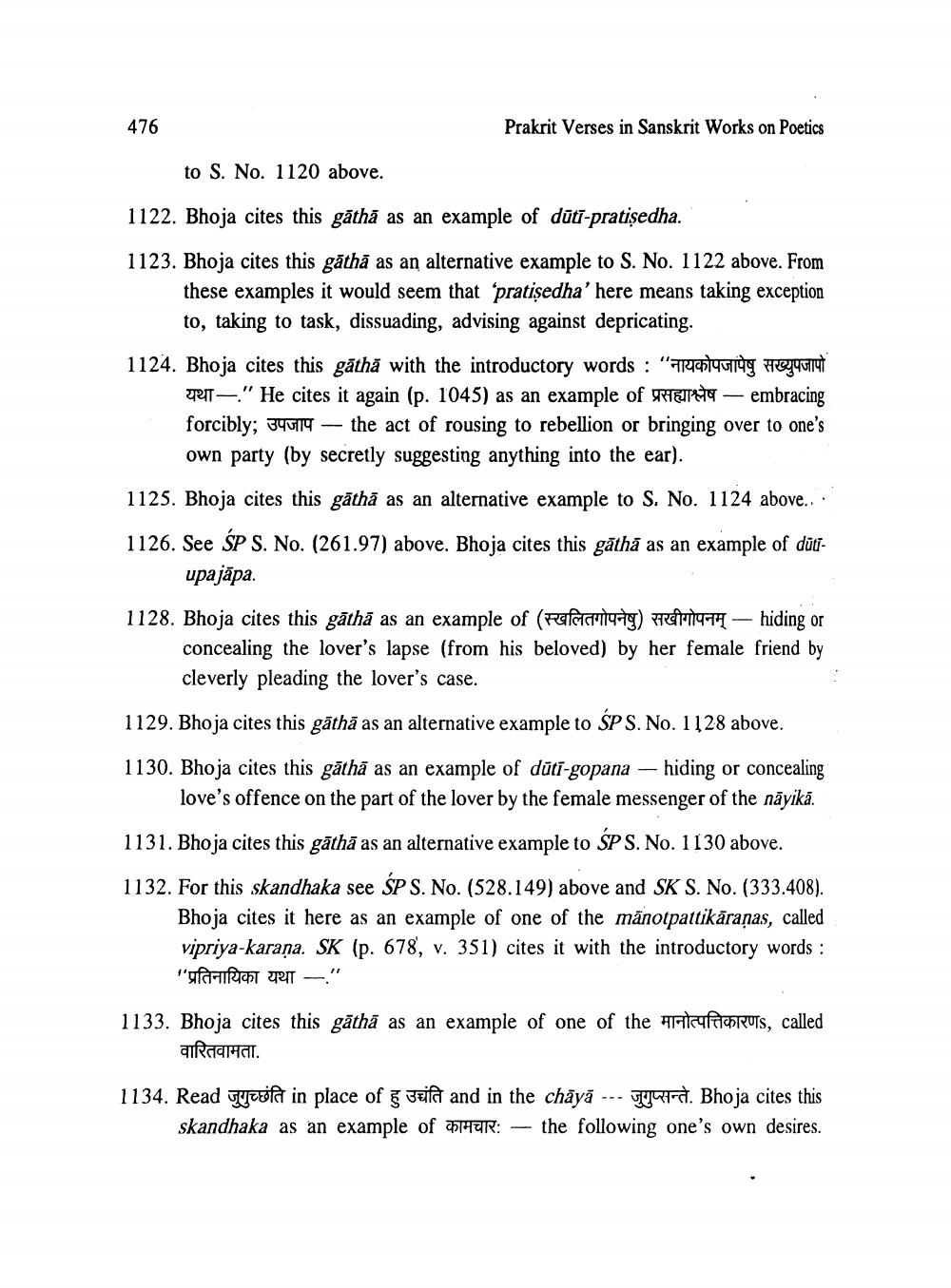________________
476
Prakrit Verses in Sanskrit Works on Poetics
to S. No. 1120 above.
1122. Bhoja cites this gātha as an example of dūtī-pratişedha.
1123. Bhoja cites this gāthā as an alternative example to S. No. 1122 above. From
these examples it would seem that “pratişedha' here means taking exception to, taking to task, dissuading, advising against depricating.
1124. Bhoja cites this găthă with the introductory words: "Fronleg meget
11—." He cites it again (p. 1045) as an example of art - embracing forcibly; 340114 — the act of rousing to rebellion or bringing over to one's
own party (by secretly suggesting anything into the ear). 1125. Bhoja cites this gāthā as an alternative example to S. No. 1124 above... 1126. See ŚP S. No. (261.97) above. Bhoja cites this gāthā as an example of dūti
ирa japa.
1128. Bhoja cites this gāthā as an example of (Pafccn1979) var 14-14- hiding or
concealing the lover's lapse (from his beloved) by her female friend by cleverly pleading the lover's case.
1129. Bhoja cites this gāthā as an alternative example to SP S. No. 1128 above.
1130. Bhoja cites this gāthā as an example of dūti-gopana - hiding or concealing
love's offence on the part of the lover by the female messenger of the nāyikā.
1131. Bhoja cites this gāthā as an alternative example to ŚP S. No. 1130 above. 1132. For this skandhaka see ŚP S. No. (528.149) above and SK S. No. (333.408).
Bhoja cites it here as an example of one of the mānotpattikāranas, called vipriya-karana. SK (p. 678, v. 351) cites it with the introductory words: "ufdrifah UIT "
1133. Bhoja cites this gāthā as an example of one of the ricorus, called
वारितवामता.
1134. Read जुगुच्छंति in place of हु उच्चंति and in the chaya --- जुगुप्सन्ते. Bhoja cites this
skandhaka as an example of thor: – the following one's own desires.




